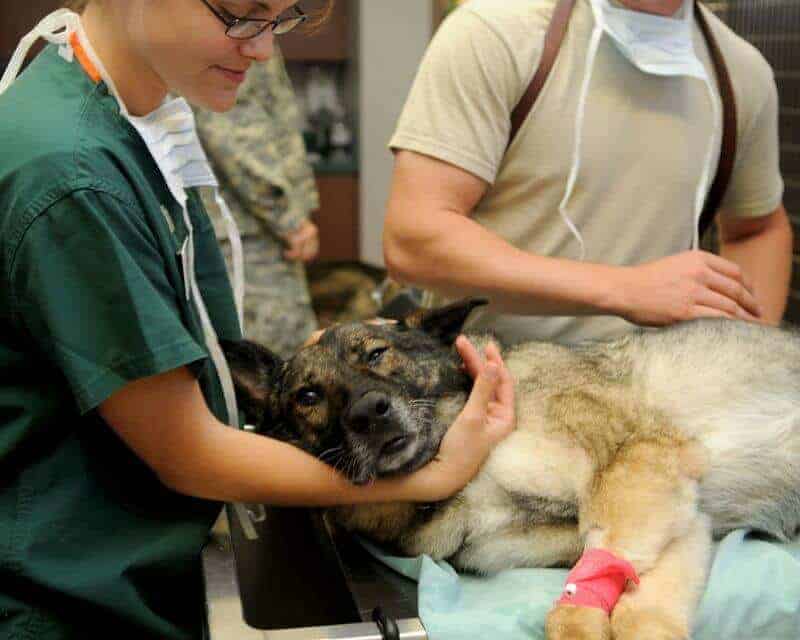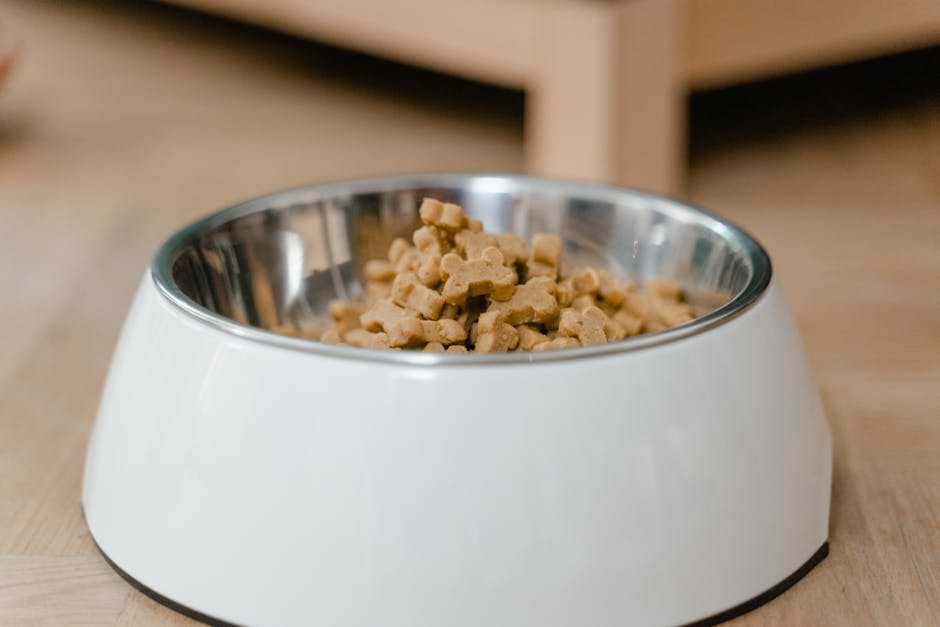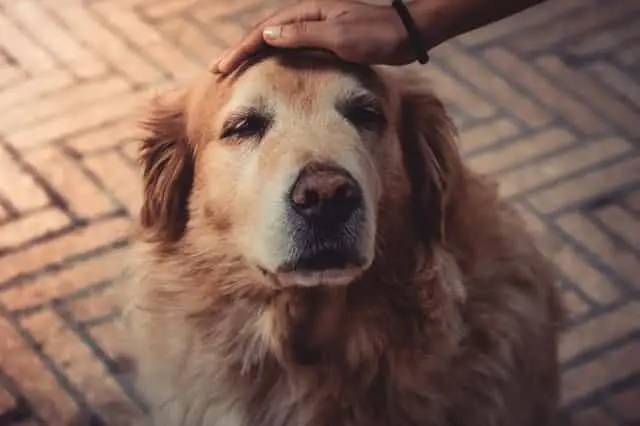Both research agents are complete. Now I have comprehensive data on all the topics. Let me compose the complete updated article.
Understanding the Labrador Retriever

The Labrador Retriever is consistently one of the most popular dog breeds worldwide, and for good reason. Labs are renowned for their intelligence, loyalty, gentle temperament, and remarkable bond with their families. Whether working as service dogs, search-and-rescue companions, or beloved family pets, Labradors bring joy and devotion to every household they join.
A major 2024 UK study found that the average lifespan for Labrador Retrievers is approximately 11.1 years, with chocolate Labs tending to have slightly shorter lifespans than their yellow and black counterparts. With proper nutrition, regular exercise, preventive veterinary care, and an understanding of breed-specific health concerns, you can help your Lab live a longer, healthier, and happier life.
This comprehensive guide covers everything you need to know about keeping your Labrador healthy, from nutrition and exercise to medical care, grooming, and senior wellness.
Nutritional Care
Nutrition is the foundation of your Labrador’s overall health and well-being. Selecting the right diet should be a top priority for every Lab owner, and it is worth investing the time to make an informed decision.
Choosing the Right Food
Look for a commercially prepared dog food that meets AAFCO (Association of American Feed Control Officials) nutritional adequacy standards for your dog’s life stage. The World Small Animal Veterinary Association (WSAVA) recommends choosing foods from manufacturers that employ board-certified veterinary nutritionists and conduct feeding trials, rather than relying solely on formulation-based claims.
For Labrador puppies, select a food specifically formulated for large-breed puppy growth. Large-breed puppy formulas contain controlled levels of calcium and phosphorus to support steady, healthy bone development and help reduce the risk of skeletal disorders. Puppy food should also contain adequate fibre, which helps keep your growing Lab full without overeating and becoming overweight.
NOTE: The dietary requirements of puppies are quite different from adult dogs. Puppies need higher protein and carefully balanced minerals for growth, while adult dogs need maintenance nutrition. Always choose an age-appropriate, high-quality branded diet. Consult your veterinarian or a board-certified veterinary nutritionist before making major dietary changes.
A Word on Grain-Free Diets
The U.S. Food and Drug Administration (FDA) has been investigating a potential link between grain-free diets high in legumes (peas, lentils, chickpeas) and dilated cardiomyopathy (DCM) in dogs since 2018. Research has shown that dogs fed non-traditional, grain-free, legume-rich diets may develop larger left ventricular diameters and reduced heart function compared to dogs on traditional diets. While the investigation is ongoing and a definitive causal link has not been established, many veterinary cardiologists now recommend avoiding grain-free diets unless your dog has a diagnosed grain allergy confirmed by a veterinarian.
Toxic Foods to Avoid
Several common human foods are dangerous or potentially fatal to dogs. Keep the following items out of your Lab’s reach at all times:
- Xylitol (birch sugar) – Found in sugar-free gum, sweets, peanut butter, and baked goods. Even small amounts can cause dangerous drops in blood sugar (hypoglycaemia), seizures, and liver failure. This is one of the most dangerous toxins for dogs.
- Chocolate – Contains theobromine and caffeine, which are toxic to dogs. Dark chocolate and baking chocolate are the most dangerous.
- Grapes and raisins – Can cause acute kidney failure. Even a small amount can be harmful. Tartaric acid is believed to be the toxic component.
- Onions and garlic – Damage red blood cells and can cause anaemia, especially with repeated exposure.
- Macadamia nuts – Cause weakness, vomiting, tremors, and elevated body temperature. Symptoms typically appear within 12 hours.
- Avocado – All parts of the plant contain persin, which can cause vomiting and diarrhoea in dogs.
- Alcohol – Even small amounts can cause vomiting, diarrhoea, breathing difficulties, and potentially fatal central nervous system depression.
- Caffeine – Found in coffee, tea, and energy drinks. Can cause restlessness, rapid breathing, heart palpitations, and seizures.
- Mouldy foods – Can contain mycotoxins that cause tremors and seizures.
If your dog ingests any of these items, contact your veterinarian or an animal poison control hotline immediately. Quick action can be lifesaving, particularly with xylitol and grape ingestion.
Feeding Frequency and Weight Management

How Often and How Much to Feed
Adult Labradors should be fed twice daily, while puppies under six months benefit from three meals per day. This regular schedule helps maintain stable energy levels and prevents the gorging behaviour that Labs are famous for.
An adult Labrador typically needs between 1,000 and 1,800 calories per day, depending on their age, weight, activity level, and whether they are spayed or neutered. Highly active working Labs may need more, while sedentary or senior Labs may need fewer calories. Your veterinarian can help you calculate the precise caloric needs for your individual dog using their body weight and condition score.
Always measure your Lab’s food using a proper measuring cup or kitchen scale rather than estimating portions. Even a small daily excess adds up over weeks and months.
The Labrador Obesity Epidemic
Obesity is the single most common health problem in Labrador Retrievers, and it deserves special attention from every Lab owner. Research published in BMC Veterinary Research found that nearly 60% of Labradors are overweight or obese.
Part of the reason is genetic. A landmark study from the University of Cambridge discovered that approximately one in four Labradors carries a mutation in the POMC gene, which controls hunger and satiety signals. Dogs with this mutation feel hungrier, burn fewer calories at rest, and are significantly more likely to become obese. This means that many Labs are quite literally hardwired to overeat, making portion control and regular exercise absolutely essential.
To monitor your Lab’s weight effectively:
- Use the Body Condition Score (BCS) system, which veterinarians rate on a scale of 1 to 9, with 4–5 being ideal.
- You should be able to feel your Lab’s ribs easily with light pressure but not see them prominently.
- Your Lab should have a visible waist when viewed from above and a slight abdominal tuck from the side.
- Ideal weight ranges are approximately 29–36 kg (65–80 lbs) for males and 25–32 kg (55–70 lbs) for females, though individual frame size varies.
Avoid sugary treats and high-calorie snacks. When using treats for training, choose low-calorie options and account for treat calories in their daily food allowance. Many veterinary nutritionists recommend that treats make up no more than 10% of your dog’s daily caloric intake.
Always provide fresh, clean water at all times. If transitioning to a new food, do so gradually over 7–10 days, mixing increasing proportions of the new food with decreasing amounts of the old food. Abrupt dietary changes can cause stomach upset, loose stools, and other gastrointestinal problems.
Exercise and Physical Care

Daily Exercise Requirements
Labradors were bred as working retrievers, and they have the energy levels to match. A healthy adult Lab needs 1 to 2 hours of exercise daily, which is significantly more than many other breeds. This should include a mix of activities such as brisk walks, off-lead running in safe areas, swimming (a natural favourite for this water-loving breed), fetch, and interactive play.
For puppies, follow the general rule of five minutes of structured exercise per month of age, twice daily. So a four-month-old puppy would get about 20 minutes of walking twice a day. Over-exercising growing puppies can damage developing joints and growth plates. Allow plenty of free play on soft surfaces instead.
If your Lab does not receive adequate daily exercise, they are far more likely to become overweight and develop behavioural problems such as destructive chewing, excessive barking, and restlessness.
Mental Stimulation
Physical exercise alone is not enough for this intelligent breed. Labradors thrive on mental challenges, and boredom can lead to unwanted behaviours. Incorporate mental stimulation into your Lab’s daily routine through:
- Puzzle feeders and food-dispensing toys – These slow down eating (helpful for greedy Labs) and provide a mental workout.
- Nose work and scent games – Hide treats around the house or garden and encourage your Lab to find them. This engages their powerful sense of smell.
- Training sessions – Short, positive reinforcement-based training sessions teach new commands and tricks while keeping your Lab’s mind sharp.
- Retrieval games – Fetch and retrieving exercises tap into your Lab’s natural instincts and provide both mental and physical exercise.
Exercise-Induced Collapse (EIC)
Labrador owners should be aware of Exercise-Induced Collapse (EIC), a genetic condition that affects this breed at a higher rate than most others. According to research from the University of California, Davis, approximately 30–40% of Labradors are carriers of the EIC gene mutation, and 3–13% are affected (having two copies of the mutation).
Dogs with EIC can tolerate mild to moderate activity but may experience muscle weakness, loss of coordination, and collapse after 5–20 minutes of intense exercise. Episodes typically last 5–25 minutes, with the dog recovering gradually. While EIC episodes are rarely fatal, they can be frightening and potentially dangerous during certain activities.
A DNA test is available through veterinary genetics laboratories to determine if your Lab carries the EIC mutation. If your dog is affected, work with your vet to establish safe exercise limits and avoid intense, sustained activities that could trigger an episode.
Training
Training should begin from a young age and continue throughout your Lab’s life. Labradors are highly trainable and eager to please, which makes them responsive to positive reinforcement methods. Consistent training helps build a strong bond between you and your dog, prevents behavioural issues, and provides valuable mental stimulation. Focus on basic obedience commands, lead manners, and recall training, and always use rewards-based techniques rather than punishment.
Grooming and Coat Care
Labradors have a distinctive double coat consisting of a dense, soft undercoat for insulation and a short, water-resistant outer coat. While their coat is relatively low-maintenance compared to long-haired breeds, Labs are notorious heavy shedders, particularly during seasonal coat changes in spring and autumn when they “blow” their undercoat.
Brushing and Bathing
- Brush your Lab 2–3 times per week with a slicker brush or undercoat rake to remove loose hair and distribute natural oils. During heavy shedding seasons, daily brushing may be necessary.
- Bathe your Lab every 4–6 weeks, or as needed if they get particularly dirty or smelly. Over-bathing strips the coat of its natural oils, which can lead to dry, itchy skin.
- Use a dog-specific shampoo that is gentle on the skin and coat.
Skin Health
Labradors are prone to several skin conditions due to their thick coats and a genetic predisposition to allergies. Common issues include:
- Hot spots (pyotraumatic dermatitis) – Red, moist, oozing lesions that appear suddenly, often triggered by allergies, insect bites, or moisture trapped in the coat. These require prompt veterinary attention.
- Flea allergy dermatitis – The most common allergy in Labs. Even a single flea bite can trigger intense itching in sensitive dogs. Year-round flea prevention is essential.
- Atopic dermatitis – Allergic reactions to environmental allergens such as pollen, dust mites, and mould. Symptoms include itchy skin, recurrent ear infections, and paw licking.
If your Lab develops persistent itching, hair loss, redness, or skin lesions, consult your veterinarian for proper diagnosis and treatment.
Ear Care
Labradors’ floppy ears create a warm, moist environment that makes them prone to ear infections. Check your Lab’s ears weekly for redness, odour, or discharge, and clean them with a veterinarian-approved ear cleaner as needed. This is especially important after swimming or bathing.
Dental Hygiene
Dental disease is one of the most common yet overlooked health problems in dogs, with studies showing that over 80% of dogs have some form of periodontal disease by age three. Left untreated, dental disease causes pain, tooth loss, and can lead to bacteria entering the bloodstream and affecting the heart, kidneys, and liver.
- Brush your Lab’s teeth at least 2–3 times per week using a dog-specific toothpaste (never human toothpaste, which often contains xylitol).
- Provide dental chews approved by the Veterinary Oral Health Council (VOHC) to help reduce plaque and tartar buildup.
- Schedule professional dental cleanings with your veterinarian as recommended, typically once a year for adult dogs.
- Watch for signs of dental problems: bad breath, difficulty eating, drooling, red or swollen gums, and loose teeth.
Medical Care and Health Screening
Common Breed-Specific Health Conditions
While Labradors are generally a robust breed, they are predisposed to several health conditions that owners should be aware of:
- Hip dysplasia – A genetic condition where the hip joint does not develop properly, leading to arthritis and pain. One of the most common orthopaedic issues in Labs.
- Elbow dysplasia – Abnormal development of the elbow joint, affecting approximately 10% of Labrador Retrievers according to OFA statistics.
- Progressive Retinal Atrophy (PRA) – A hereditary degenerative eye disease that causes gradual vision loss and eventual blindness. There is no treatment, but affected dogs typically adapt well.
- Exercise-Induced Collapse (EIC) – A genetic condition causing weakness and collapse during intense exercise (discussed in detail above).
- Obesity – The most prevalent health issue in the breed, often linked to the POMC gene mutation.
- Cancer – Labradors have a higher than average incidence of certain cancers, including lymphoma and mast cell tumours.
- Ear infections – Chronic otitis externa is common due to their floppy ear structure.
- Musculoskeletal disorders – Including cruciate ligament injuries, particularly in overweight dogs.
Recommended Health Testing
The Labrador Retriever Club and AKC recommend the following health evaluations for breeding dogs, but these tests are also valuable for pet owners to understand their Lab’s health risks:
- Hip evaluation – OFA or PennHIP radiographs to assess hip joint health (performed after 24 months of age).
- Elbow evaluation – OFA radiographs to screen for elbow dysplasia.
- Ophthalmologist evaluation – Conducted by a board-certified veterinary ophthalmologist and registered with OFA.
- EIC DNA test – Identifies carriers and affected dogs for Exercise-Induced Collapse.
- PRA-prcd DNA test – Screens for the progressive rod-cone degeneration form of PRA.
- D Locus (Dilute) DNA test – Identifies the dilute gene.
- Centronuclear Myopathy (CNM) DNA test – Optional but recommended screening.
Ask your vet about which tests might be appropriate for your Lab, particularly if you notice any signs of joint problems, vision changes, or exercise intolerance.
Vaccination
Vaccinations are your dog’s armour against serious infectious diseases. The 2022 AAHA Canine Vaccination Guidelines classify vaccines into two categories:
Core vaccines (recommended for all dogs):
- Rabies
- Canine distemper virus (CDV)
- Canine adenovirus-2 (hepatitis)
- Canine parvovirus (CPV-2)
Non-core vaccines (recommended based on lifestyle and risk factors):
- Bordetella bronchiseptica and canine parainfluenza virus (kennel cough) – recommended for dogs that visit boarding facilities, dog parks, or groomers
- Leptospirosis – recommended in areas where the disease is prevalent
- Canine influenza – recommended for dogs with high social exposure
- Lyme disease – recommended in tick-endemic areas
Puppies typically begin their vaccination series at 6–8 weeks of age, with boosters given every 2–4 weeks until around 16 weeks of age. Adult dogs receive booster vaccinations on a schedule determined by your veterinarian, with most core vaccines now given every three years after the initial series.
Follow your veterinarian’s recommended vaccination schedule and never use any medication without veterinary guidance.
Parasite Prevention
Fleas, ticks, mites, and intestinal worms can all affect your Labrador’s health. Maintain year-round parasite prevention through:
- Monthly flea and tick preventatives (oral or topical)
- Regular deworming as recommended by your vet
- Annual faecal examinations to check for intestinal parasites
- Heartworm prevention medication (monthly, year-round in most areas)
If you observe any abnormal symptoms, external wounds, skin changes, or parasites on your dog, report them to your vet as soon as possible.
Joint Health and Supplements
Given the Labrador’s predisposition to hip and elbow dysplasia, proactive joint care is particularly important for this breed.
Omega-3 Fatty Acids (Fish Oil)
Fish oil is one of the most well-supported supplements for canine joint health. A randomised, double-blind clinical trial found that dogs receiving fish oil supplementation showed approximately 50% improvement in pain, weight-bearing, and joint disease markers over three months, compared to virtually no change in the placebo group. The key omega-3 fatty acids EPA and DHA reduce inflammation within the joints and throughout the body.
Discuss the appropriate fish oil dosage with your vet, and note that it takes approximately two months of consistent supplementation before clinical benefits become apparent.
Glucosamine and Chondroitin
Glucosamine and chondroitin are widely used joint supplements for dogs, though the scientific evidence is mixed. Some studies show improvements in pain and mobility, while others show results no better than placebo. Newer research suggests that undenatured type II collagen (UC-II) may be more effective than traditional glucosamine and chondroitin supplements.
For large breed dogs like Labradors, many veterinarians recommend starting joint supplements from around 1 year of age as a preventive measure, especially if there is a family history of joint problems. Always consult your vet before starting any supplement regimen.
Lifestyle Measures for Joint Protection
- Maintain a healthy body weight – This is the single most effective way to protect your Lab’s joints. Even modest weight loss significantly reduces stress on arthritic joints.
- Provide low-impact exercise such as swimming, which is excellent for building muscle without stressing the joints.
- Use ramps instead of allowing your Lab to jump in and out of vehicles or onto furniture.
- Provide an orthopaedic bed with adequate cushioning and support, especially for older dogs.
Mental Health and Wellbeing
Labradors are highly social, people-oriented dogs that thrive on companionship and attention. Their psychological health deserves just as much attention as their physical health.
- Avoid leaving your Lab alone for extended periods. Labradors are prone to separation anxiety, which can manifest as destructive behaviour, excessive barking, and house soiling.
- Provide a calm, enriching environment with comfortable bedding, access to toys, and regular interaction with family members.
- Socialise your Lab from a young age with other dogs, people, and new experiences to build confidence and prevent fearfulness.
- Recognise signs of stress such as excessive panting, pacing, whining, lip licking, or withdrawal. If your Lab shows persistent signs of anxiety or behavioural changes, consult your vet, as these can sometimes indicate underlying pain or illness.
Senior Labrador Care

Labradors are generally considered senior dogs from around 7–8 years of age. As your Lab enters their golden years, their care needs will change, and a few adjustments can make a significant difference in their comfort and quality of life.
Veterinary Visits
Senior Labs should have veterinary check-ups twice a year rather than annually. These visits should include blood work, urinalysis, and other laboratory tests to catch age-related conditions such as kidney disease, liver problems, hypothyroidism, and diabetes early, when they are most treatable.
Diet Adjustments
Senior Labradors typically need fewer calories as their metabolism slows and activity levels decrease. Switch to a senior-specific dog food that provides balanced nutrition with reduced calories, increased fibre, and often added glucosamine and antioxidants. Monitor their weight closely, as obesity becomes even more dangerous for ageing joints and organs.
Exercise Modifications
While senior Labs still need regular activity, adjust the intensity and duration to match their abilities. Shorter, more frequent walks replace long hikes. Swimming remains an excellent option as it provides exercise without putting stress on ageing joints. Watch for signs of pain or fatigue such as limping, reluctance to walk, or difficulty getting up from rest.
Home Comfort
- Provide an orthopaedic bed with memory foam or supportive padding to cushion arthritic joints.
- Add non-slip rugs or mats on smooth flooring to prevent slips and falls.
- Use ramps or steps to help your Lab access the car, sofa, or bed without jumping.
- Keep food and water bowls at a comfortable height using a raised feeder if your Lab has neck or back stiffness.
Common Age-Related Conditions
Be alert for signs of arthritis, vision and hearing loss, cognitive dysfunction (the canine equivalent of dementia), hypothyroidism, and increased susceptibility to infections. Report any changes in behaviour, appetite, mobility, or bathroom habits to your vet promptly. Early intervention makes a real difference in managing age-related conditions.
Conclusion
Keeping your Labrador healthy and happy is not complicated, but it does require consistent effort and attention to their breed-specific needs. From choosing a nutritionally complete diet and maintaining a healthy weight, to providing adequate exercise, regular veterinary care, grooming, dental hygiene, and joint support, every aspect of care contributes to a longer, better life for your Lab.
Remember that Labradors are uniquely prone to obesity due to the POMC gene mutation, so weight management should be a lifelong priority. Stay informed about breed-specific health conditions, keep up with vaccinations and parasite prevention, and build a strong relationship with a trusted veterinarian who knows your dog’s individual health history.
Most importantly, treat your Labrador as the loyal family member they are. With the right care, attention, and love, your Lab can enjoy a healthy, active life well into their senior years.








